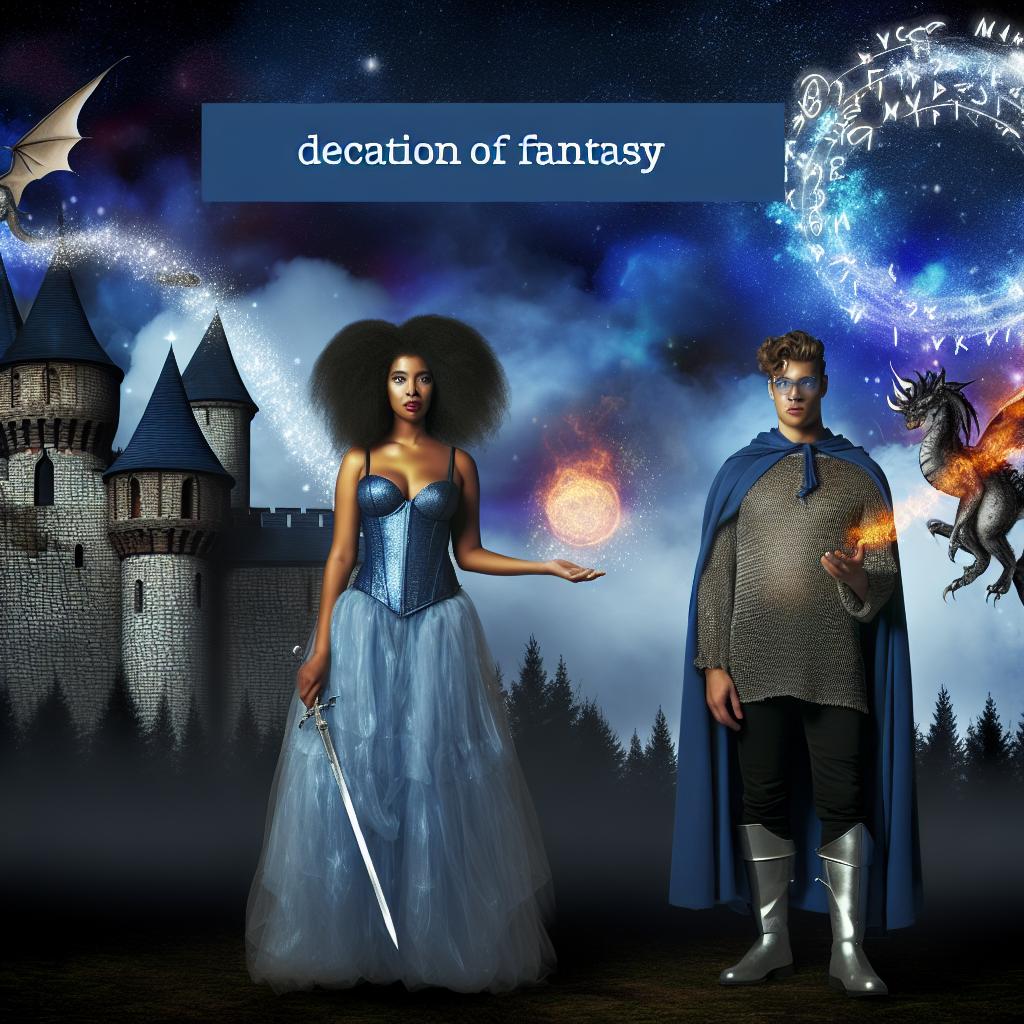The Definition of Fantasy as a Genre

Understanding Fantasy as a Genre
The fantasy genre is a rich and expansive category of storytelling that occupies a unique place in literature and popular culture. It encompasses a broad array of narratives, settings, and character archetypes that transcend the ordinary, venturing into realms of the extraordinary and impossible.
Characteristics of the Fantasy Genre
While the fantasy genre encompasses a diverse range of stories, there are several common elements that often define it. These include magical elements, mythical creatures, and otherworldly settings.
Magic and Supernatural Elements: Central to many fantasy stories is the presence of magic or supernatural phenomena. Magic can manifest in various forms, from spells and enchantments to magical creatures and artifacts. Magic often serves as a central mechanism driving the plot forward, creating conflicts or solutions to challenges faced by characters. The rules and origins of magic can vary extensively, from innate abilities within certain beings to learned skills passed down through generations. This flexibility allows authors to create unique power dynamics and introduce exciting twists in storylines.
Imaginary Worlds: Fantasy often involves settings that are significantly different from our own world. These worlds may include intricate maps, unique cultures, and distinct rules of reality. Authors frequently create fully-realized worlds that encourage readers to immerse themselves in the environment. World-building is a crucial aspect of fantasy literature, with authors investing considerable effort into crafting detailed landscapes, societies, and histories. A vivid setting not only engages readers but also acts as a backdrop that shapes the narrative. Detailed worlds make the fantastical elements more believable and enhance readers’ suspension of disbelief.
Mythical Creatures and Beings: Dragons, elves, wizards, and talking animals are common in fantasy literature. These creatures often possess abilities and characteristics that set them apart from real-world fauna and flora, contributing to the fantastical nature of the genre. These beings often play pivotal roles in the storyline, either as allies or adversaries of the protagonists. Their unique attributes and abilities add layers to the plot, challenging characters in unexpected ways or helping them overcome obstacles. Mythical creatures are fundamental to establishing the magical tone of many fantasy worlds, serving as symbols of power, mystery, and other-worldliness.
Subgenres in Fantasy
Fantasy is not a monolithic genre; it includes various subgenres that cater to different audiences and preferences. Some notable subgenres include:
High Fantasy: High fantasy features epic tales set in secondary worlds completely separate from Earth. Such stories often involve a battle between good and evil, with a clear moral and ethical framework. J.R.R. Tolkien’s “The Lord of the Rings” is a canonical example. High fantasy narratives often include complex plots involving quests, expansive lore, and a multitude of characters, each contributing to a grand overarching theme. The moral and philosophical questions these stories tackle often include identity, power, and the nature of good and evil, providing a rich tapestry for readers to explore.
Urban Fantasy: Urban fantasy blends fantastical elements with realistic, modern settings. These stories often unfold in cities and integrate magic into the everyday world. An example is the “Harry Dresden” series by Jim Butcher. By situating fantastical elements within familiar urban landscapes, this subgenre explores the intersection of the ordinary and the exceptional. Urban fantasy often investigates themes such as hidden societies within our own and the coexistence of human and magical communities. This subgenre can serve as a bridge for readers new to fantasy, offering relatable environments combined with magical intrigue.
Dark Fantasy: Dark fantasy combines elements of the horror genre with traditional fantasy. It often features a grim or eerie atmosphere, where characters face moral ambiguities and nightmarish creatures. This subgenre delves into the darker aspects of the human experience, challenging characters to confront their fears and question their moral compass. Dark fantasy often deals with themes of death, despair, and the inevitability of entropy, providing a more mature and introspective take on fantasy. This subgenre appeals to readers seeking narratives that reflect complex psychological and existential issues.
The Role of Fantasy in Culture
Fantasy holds a crucial place in cultural storytelling traditions. It provides a means for exploring complex themes such as heroism, morality, and the human condition, often through metaphors and allegories. By engaging with fantastical narratives, readers can examine real-world issues through a different lens, enabling new perspectives and insights. The ability of fantasy to tackle essential human themes in a symbolic manner makes it a powerful tool for reflection and learning. Through tales of adventure and hardship, fantasy explores enduring questions of life, providing both entertainment and philosophical insight.
Further Exploration
For those interested in delving deeper into the world of fantasy, consider reading more about its evolution, influential works, and its impact on other media formats such as film and video games. Animation, for instance, has brought the genre to a wider audience, making fantastical worlds even more vibrant and accessible. Numerous online resources and platforms provide access to discussions and analyses about fantasy literature, offering insights and commentary from both academic and fan perspectives. Understanding the broader impact of fantasy can enhance appreciation of the genre’s nuances and its influence across various cultural domains.
In conclusion, fantasy is a versatile and enduring genre that continues to captivate audiences globally. It draws readers into worlds where imagination knows no bounds, offering timeless tales of adventure, conflict, and discovery. The flexibility of the genre’s elements and structures continues to inspire both writers and readers, ensuring its continual evolution and relevancy in a rapidly changing world. Whether presented in books, films, or games, fantasy remains a portal to the creative exploration of human experience, touching the core of our deepest imaginings and aspirations.
Comments are closed.
Comments on 'The Definition of Fantasy as a Genre' (0)
Comments Feed